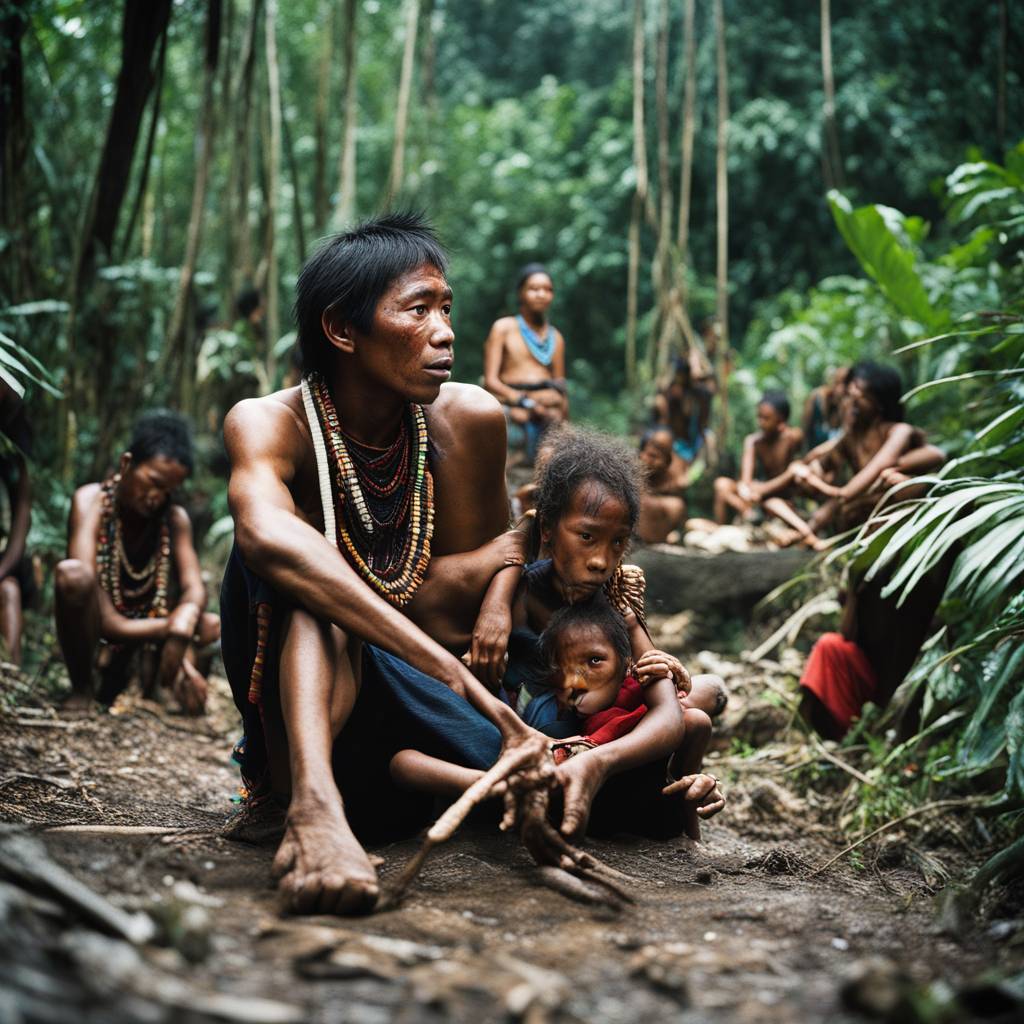A recent report released by Brazil’s top public health institute revealed that many of the Yanomami people, the largest Indigenous tribe in the Amazon, have been contaminated with mercury due to illegal gold mining. The research was conducted in nine villages along the Mucajai River, a region where illegal mining is widespread, and found that 84% of the Yanomami tested had high levels of mercury in their hair. This level of exposure can lead to various health problems, with 10% exceeding a threshold associated with more severe medical conditions. The contamination is likely due to the common practice of using mercury to process gold in illegal mining activities.
Further studies also found high levels of mercury in fish in the area, with consuming contaminated fish being the most common source of exposure for the Yanomami. The ingestion of mercury can lead to a range of health effects, including neurological damage, mobility issues, and developmental abnormalities in fetuses. The slow and progressive nature of chronic mercury exposure can result in a wide spectrum of clinical symptoms, from mild to severe. Efforts to address mercury pollution globally led to the 2013 Minamata Convention, aimed at curbing emissions of the toxic substance, with Brazil and the United States among the signatories.
The Brazilian government report, which has not been peer reviewed, is based on three papers published in the journal Toxics, all stemming from the same field work. This study aligns with prior research indicating that mercury contamination is widespread throughout the Amazon and has been a long-standing issue due to illegal mining. Global health experts have identified communities in Amazon river tributaries as one of the most vulnerable to mercury exposure. Small-scale gold mining is considered the largest source of human-led contamination, with the Yanomami territory being particularly impacted.
The mining problem in the Yanomami territory escalated during the term of former President Jair Bolsonaro, who weakened environmental protections and saw a surge in illegal mining activity due to rising gold prices. Researchers conducting the fieldwork near the end of Bolsonaro’s term encountered a high level of illegal mining activity in the area, with the Mucajai River bustling with gold barges and small planes flying to and from mining sites. Despite current President Luiz Inácio Lula da Silva’s pledge to drive out gold prospectors and improve health conditions for the Yanomami, the task remains challenging.
Yanomami leader Dário Kopenawa emphasized that mining is the biggest threat facing the tribe, leading to contamination, devastation, malaria, and malnutrition. The urgent need to expel intruders from Yanomami land is crucial to preventing further harm to the tribe. The research findings provide concrete evidence of the detrimental impact of illegal mining on the health and well-being of the Yanomami people, highlighting the importance of addressing mercury contamination and protecting Indigenous communities in the Amazon region.













